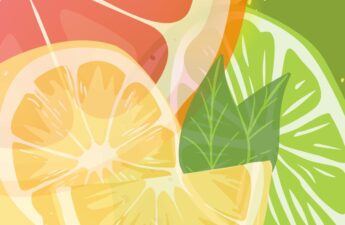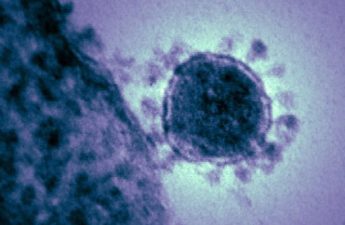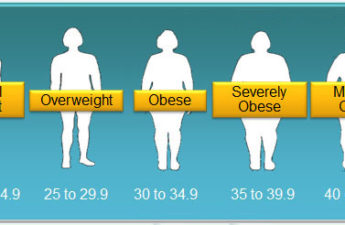While there are many benefits that can come from following a healthier diet, it’s important that any diet changes are made carefully. This is especially true if you’re someone who takes a prescription drug, as many health food staples can negatively interact with them.
New year, new norovirus outbreaks: Let’s add ‘hand washing’ to the resolution list!
Norovirus, a highly contagious virus causing vomiting and diarrhea, is prevalent during the winter months. Symptoms typically last 1-3 days and include nausea, vomiting, stomach cramps, and diarrhea. Prevention involves frequent handwashing, especially after contact with an infected person or contaminated surfaces, and proper cleaning and disinfection of affected areas.
Study: Obstetrics Units in Rural Communities Declining
According to the researchers, the decline of obstetrics units in rural communities is contributing to rising maternal morbidity rates.
Economists: Rural Uninsured Rates Likely to Rise if ACA Premium Tax Credits Expire
For residents in rural communities across the country, those rising prices could mean not having access to health insurance anymore.
Even small diet tweaks can lead to sustainable weight loss – here’s how
It’s a well-known fact that to lose weight, you either need to eat less or move more. But how many calories do you really need to cut out of your diet each day to lose weight? It may be less than you think.
Mixed Lessons from Intentionally Infecting People with Covid-19
The idea sounded counterintuitive, but by carefully dosing individuals with SARS-CoV-2 in a controlled setting, scientists could study how the virus affects the body and learn what factors may offer protective benefits.
These types of studies, called human challenge trials, could help fast-track understanding the deadly virus devastating the world, experts claimed. Others, though, questioned whether the potential benefits were worth the risk, particularly given the host of unknowns surrounding Covid-19, and the lack of available treatments at the time.
Just two hours of exercise a week can bring you huge cardiovascular health benefits
A sedentary person who goes from doing nothing to exercising a couple of hours a week will see the greatest reductions in cardiovascular risk during this period. If they increase the amount they exercise to four hours a week, there would be additional – albeit smaller – reductions in risk (around 10%). But the benefits to cardiovascular health appear to max out after 4-6 hours a week – with no additional gains beyond this point for everyone.
Stimulant Users Are Caught in Fatal ‘Fourth Wave’ of Opioid Epidemic
The first wave of the long-running and devastating opioid epidemic began in the United States with the abuse of prescription painkillers in the early 2000s. The second wave involved an increase in heroin use, starting around 2010. The third wave began when powerful synthetic opioids such as fentanyl started appearing in the supply around 2015. Now experts are observing a fourth phase of the deadly epidemic.
Why your spin bike has become a clothes rack – and what you can do about it, according to behavioral science
Research shows a quarter of us fail to stick to our New Year resolutions after just one week and more than half within six months. At the end of two years, only 20% succeed.
Hallucinogens approved for treating psychiatric disorders: what does the science say?
Hallucinogens are now being presented as a breakthrough in the treatment of severe psychiatric disorders, such as depression or post-traumatic stress disorder, sometimes in combination with psychotherapy).
Despite being presented as innovations, the therapeutic potential of psychedelics is not a new discovery. In the 1960s and 70s, these substances were explored for medical use but quickly fell out of favour due to regulatory restrictions.
Now, in 2024, the question remains: Are psychedelics genuinely effective for treating psychiatric disorders?
Most adults will gain a pound this year – and every year. Here’s how to stop ‘weight creep’ Nick Fuller, University of Sydney As we enter a new year armed with resolutions to improve our lives, there’s a good chance we’ll…
A mouse study by researchers from the Allen Institute in Seattle provides roadmap for how aging may alter brain cell genetic activity.
For Many Rural Women, Finding Maternity Care Outweighs Concerns About Abortion Access
A study that examined nearly 5,000 acute care hospitals found that by 2022, 52% of rural hospitals lacked obstetrics care after more than a decade of unit closures. The health implications of those closures for young women, the population most likely to need pregnancy care, and their babies can be significant. Research has shown that added distance between a patient and obstetric care increases the likelihood the baby will be admitted to a neonatal intensive care unit, or NICU.
Five ways to cut your risk of cancer – by an oncologist
By adopting healthy lifestyle choices, you’re not only reducing your cancer risk but also improving your overall health and wellbeing, and you’ll probably be happier with your new self too. It’s never too late to start making positive changes that can have a lasting impact on your health.
What if you could rank food by ‘healthiness’ as you shopped?
Nutrient profiling systems use algorithms to simplify picking healthy groceries














